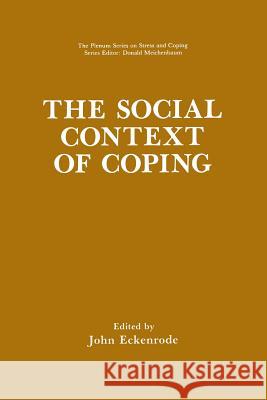The Social Context of Coping » książka
The Social Context of Coping
ISBN-13: 9781489937421 / Angielski / Miękka / 2013 / 286 str.
I am very pleased to have been asked to do abrief foreword to this second CRISP volume, The Social Context o Coping. I know most of the participants and their work, and respect them as first-rate and influen- tial research scholars whose research is at the cusp of current concerns in the field of stress and coping. Psychological stress is central to human adaptation. It is difficult to visualize the study of adaptation, health, illness, personal soundness, and psychopathology without recognizing their dependence on how weil people cope with the stresses of living. Since the editor, John Eckenrode, has portrayed the themes of each of the chapters in his introduction, I can limit myself to a few general comments about stress and coping. Stress research began, as unexplored fields often do, with very sim- ple-should I say simplistic?-ideas about how to define the concept. Early approaches were unidimensional and input-output in outlook, modeled implicitly on Hooke's late-17th-century engineering analysis in which external load was an environmental stressor, stress was the area over wh ich the load acted, and strain was the deformation of the struc- tu re such as a bridge or building.











